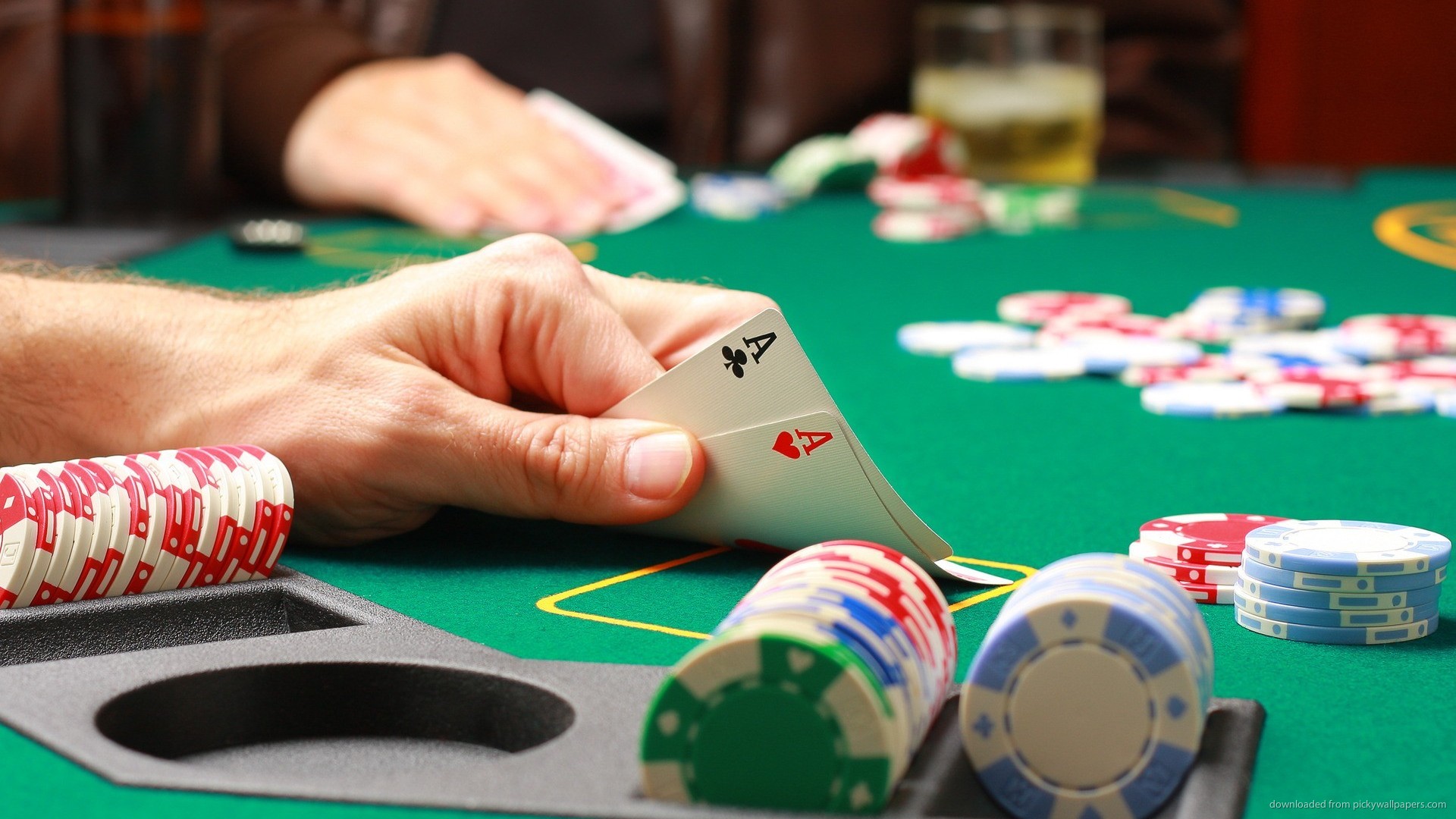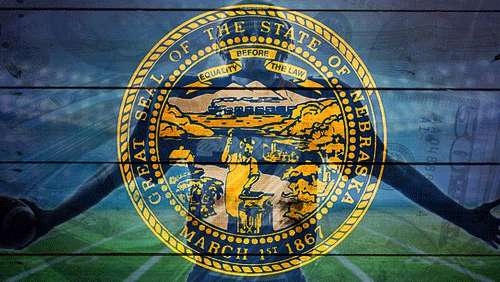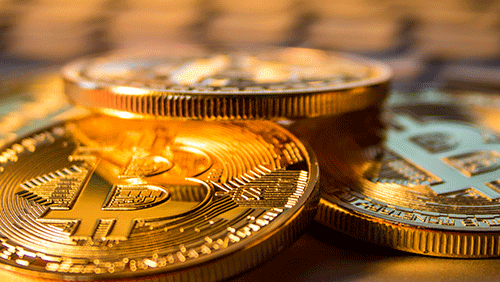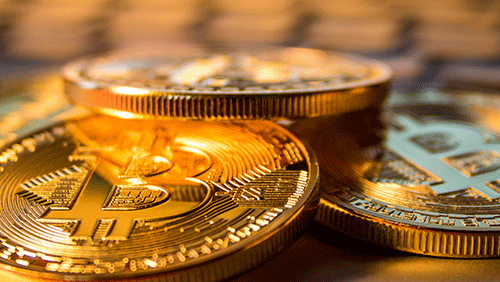Rood & Riddle Equine Hospital will host Rood & Riddle Responds, an educational seminar for people engaged in the equine industry, on Feb. 22 at Embassy Suites in Lexington.
Monthly Archives: January 2017
Rood & Riddle to Host Educational Seminar
Rood & Riddle Equine Hospital will host Rood & Riddle Responds, an educational seminar for people engaged in the equine industry, on Feb. 22 at Embassy Suites in Lexington.
Experts Believe Pegasus Time Should Be Faster
An expert on speed figures and a respected clocker believe the listed final time of the Pegasus World Cup Invitational (G1) is slow by about four-fifths of a second, and that the actual final time Arrogate ran should be close to the track record.
Experts Believe Pegasus Time Should Be Faster
An expert on speed figures and a respected clocker believe the listed final time of the Pegasus World Cup Invitational (G1) is slow by about four-fifths of a second, and that the actual final time Arrogate ran should be close to the track record.

Libratus Trounces Human Brain, Beats Poker Pros to Tune of $1.8 Million
Poker bot Libratus has shown no mercy to the four human poker pros who challenged it to an almost three-week match, each playing the artificial intelligence (AI) creation of the Computer […]
The post Libratus Trounces Human Brain, Beats Poker Pros to Tune of $1.8 Million appeared first on .

Climate change messing with Cambodia’s rain betting market
The pace of climate change is causing problems for both bettors and bookies in Cambodia’s rain gambling market.
Outside of the local lottery, Cambodia doesn’t allow its citizens to gamble, a needlessly prohibitionist stance that predictably leads Khmer gamblers to seek unapproved methods of scratching their itch, including the decades-old practice of betting on when rain might fall.
For the uninitiated, rain bettors pick one of three daily time slots – 6am to noon, noon to 2pm, or 2pm to 6am – during which they believe rain will fall. Since Cambodia’s traditional ‘wet’ season – May through October – makes afternoon rain all too predictable, the morning slot is where gamblers stand to earn some real cash if they wager correctly.
A new report by Southeast Asia Globe quotes one rain betting ‘broker’ saying he had “thousands” of customers, who wager anywhere from $15 to $1,000 on the likelihood of the clouds literally and figuratively making it rain.
Cautious Optimism For Lord Nelson in Laminitis Battle
Despite a tenuous situation, Spendthrift Farm general manager Ned Toffey says there is reason for optimism in the prognosis of multiple grade 1 winner Lord Nelson as he battles laminitis.

Nevada sportsbook win dips in 2016 despite record handle
Nevada casino gaming revenue took a slight dip in December but the state managed to squeak out an annual gain all the same.
Figures released Tuesday by the Nevada Gaming Control Board show gaming revenue of $956.1m in December, a 2.7% decline from December 2015’s take. The situation was slightly rosier on the Las Vegas Strip, where gaming revenue fell 1.7% to $590.7m. For 2016 as a whole, statewide gaming win improved 1.3% to $11.25b.
December’s decline came despite a monster baccarat win of $172.8m, which was down 3.3% year-on-year, but keep in mind that December 2015’s baccarat win was up nearly one-fifth from December 2014. Blackjack slipped 7.3% to $89.8m, craps gained 28.1% to $35.2m and roulette slid 11.7% to $26.2m.
Baccarat maintained its status as 2016’s top table earner, despite falling 5.3% to $1.22b, enough to keep blackjack in second place with $1.14b (+4.3%). Craps ranked third with $384m (flat) while roulette placed fourth with $351.2m (+8.9%). December’s slots win fell 3.4% to $547.3m, while its 2016 total was up 2.3% to $7.16b.

Nevada sportsbook win dips in 2016 despite record handle
Nevada casino gaming revenue took a slight dip in December but the state managed to squeak out an annual gain all the same.
Figures released Tuesday by the Nevada Gaming Control Board show gaming revenue of $956.1m in December, a 2.7% decline from December 2015’s take. The situation was slightly rosier on the Las Vegas Strip, where gaming revenue fell 1.7% to $590.7m. For 2016 as a whole, statewide gaming win improved 1.3% to $11.25b.
December’s decline came despite a monster baccarat win of $172.8m, which was down 3.3% year-on-year, but keep in mind that December 2015’s baccarat win was up nearly one-fifth from December 2014. Blackjack slipped 7.3% to $89.8m, craps gained 28.1% to $35.2m and roulette slid 11.7% to $26.2m.
Baccarat maintained its status as 2016’s top table earner, despite falling 5.3% to $1.22b, enough to keep blackjack in second place with $1.14b (+4.3%). Craps ranked third with $384m (flat) while roulette placed fourth with $351.2m (+8.9%). December’s slots win fell 3.4% to $547.3m, while its 2016 total was up 2.3% to $7.16b.
Arsenault Wins National Handicapping Championship
Ray Arsenault of Thornhill, Ontario, Canada, near Toronto, earned the $800,000 first-place prize and an Eclipse Award as Horseplayer of the Year at this weekend’s 18th annual National Handicapping Championship (NHC).
International Buyers Dominate New Zealand Sale
A deep international buying bench helped boost the aggregate and hold the average price steady at the two-day premier yearling sale held by New Zealand Bloodstock in Karaka, New Zealand.
Nearly 14,000 S.C. lottery players won Pick 3 Friday
A record number of South Carolina Education Lottery Pick 3 players started their weekend with a win.South Carolina, Winning Ticket Announcement, Pick 3, Record

Sheldon Adelson exits the $1.9B Raiders Stadium project
The family of Las Vegas Sands Corp. Chairman and CEO Sheldon Adelson has backed out from the $1.9 billion football stadium that will house the NFL’s Oakland Raiders.
Adelson’s exit from the multi-billion stadium project has reportedly left a financial void that even Goldman Sachs may not be able to fill, according to the Las Vegas Review-Journal.
The initial plan was for Adelson to shell out $650 million toward the stadium’s construction while the Raiders will commit $500 million. $750 million in bonds would be funded by a 0.88-percentage-point increase in Clark County’s hotel room tax.
“The Raiders are putting a lot of hopes in the Goldman Sachs commitments, but I don’t know the extent of their commitments, and I certainly do not share that same level of hope,” Clark County Commission Chairman Steve Sisolak said, according to the news report. “If (the Raiders) have a Plan B, I’m not aware of it, and the owners meeting is coming up in two months.”

Daily Fantasy Sports legalization debate heats up in Nebraska
Proponents and opponents of daily fantasy sports (DFS) in Nebraska have locked horns as the state opens the debate on the industry’s regulation.
Omaha World Herald reported that DFS giants DraftKings and FanDuel both pointed out at the start of the debate on Legislative Bill 469 that there’s a need to regulate fantasy sports in order to protect their customers. They said that 300,000 of the 57 million fantasy sports players in the US are from Nebraska.
On the issue on whether DFS is a game of skill or a game of chance, both operators argued that their games require skill to draft players, research opponents and set fantasy lineups.
“This is not an expansion of gambling,” Sean Ostrow, who is a representative of Fan Duel, told the Senate, according to the news report.

Daily Fantasy Sports legalization debate heats up in Nebraska
Proponents and opponents of daily fantasy sports (DFS) in Nebraska have locked horns as the state opens the debate on the industry’s regulation.
Omaha World Herald reported that DFS giants DraftKings and FanDuel both pointed out at the start of the debate on Legislative Bill 469 that there’s a need to regulate fantasy sports in order to protect their customers. They said that 300,000 of the 57 million fantasy sports players in the US are from Nebraska.
On the issue on whether DFS is a game of skill or a game of chance, both operators argued that their games require skill to draft players, research opponents and set fantasy lineups.
“This is not an expansion of gambling,” Sean Ostrow, who is a representative of Fan Duel, told the Senate, according to the news report.

Western Union Fraud Settlement Will Benefit Bitcoin
When it comes to big headlines about multimillion dollar settlements with the US government over alleged fraud, tread carefully. The latest circling the rounds is a $586 million settlement between Western Union and the Federal Trade Commission over a mix of actual fraud where someone is lied to and actually stolen from, and contrived fraud where two people are trying to consensually transfer money to complete a transaction that the government doesn’t like for regulatory reasons. It’s very hard to tell what the big $586 million price tag comes down to, but what is easier to tell is that this settlement will benefit bitcoin and other cryptocurrencies in the end.
Undoubtedly there does seem to be some amount of real fraud involved in this settlement. The old Nigerian scam where the prince of Nigeria promises you millions of dollars if you can pay for his plane ticket, send it Western Union. Or a fake telemarketer calls you, sells you something, demands money via Western Union and then never sends you anything. Or someone pretends to be a family member stranded in Yemen and asks for money so they can leave the Yemeni airport and escape the incoming terrorists.
These are actual crimes by any moral standard. But other things stand out in this settlement that are only artificially criminal, like hundreds of millions of dollars to human traffickers in China and drug traffickers globally. While the term “human trafficking” certainly sounds bad and nothing any of us want to be a part of, it usually involves a consensual agreement to move people illicitly across international borders. (That is, if we’re not talking about being kidnapped into forced sex slavery, which of course is a real and horrible crime.) Drug trafficking is just the movement of goods that the government doesn’t like, across borders. If vitamin C were classified as a Schedule I drug tomorrow by Congress, shipping oranges internationally would be considered drug trafficking. That doesn’t mean it’s an actual crime.
Even assuming that everything involved in this settlement is bona fide fraud, the question that must be asked is why should stopping such fraud be Western Union’s responsibility? If I wire money via any bank to any other bank to pay for a telemarketing product, can I sue either bank if I never get the product? If I fall for a Nigerian scam but pay by wire, is the bank responsible? Why should it be, assuming it doesn’t freely choose to accept responsibility for someone else’s stupidity?

Western Union Fraud Settlement Will Benefit Bitcoin
When it comes to big headlines about multimillion dollar settlements with the US government over alleged fraud, tread carefully. The latest circling the rounds is a $586 million settlement between Western Union and the Federal Trade Commission over a mix of actual fraud where someone is lied to and actually stolen from, and contrived fraud where two people are trying to consensually transfer money to complete a transaction that the government doesn’t like for regulatory reasons. It’s very hard to tell what the big $586 million price tag comes down to, but what is easier to tell is that this settlement will benefit bitcoin and other cryptocurrencies in the end.
Undoubtedly there does seem to be some amount of real fraud involved in this settlement. The old Nigerian scam where the prince of Nigeria promises you millions of dollars if you can pay for his plane ticket, send it Western Union. Or a fake telemarketer calls you, sells you something, demands money via Western Union and then never sends you anything. Or someone pretends to be a family member stranded in Yemen and asks for money so they can leave the Yemeni airport and escape the incoming terrorists.
These are actual crimes by any moral standard. But other things stand out in this settlement that are only artificially criminal, like hundreds of millions of dollars to human traffickers in China and drug traffickers globally. While the term “human trafficking” certainly sounds bad and nothing any of us want to be a part of, it usually involves a consensual agreement to move people illicitly across international borders. (That is, if we’re not talking about being kidnapped into forced sex slavery, which of course is a real and horrible crime.) Drug trafficking is just the movement of goods that the government doesn’t like, across borders. If vitamin C were classified as a Schedule I drug tomorrow by Congress, shipping oranges internationally would be considered drug trafficking. That doesn’t mean it’s an actual crime.
Even assuming that everything involved in this settlement is bona fide fraud, the question that must be asked is why should stopping such fraud be Western Union’s responsibility? If I wire money via any bank to any other bank to pay for a telemarketing product, can I sue either bank if I never get the product? If I fall for a Nigerian scam but pay by wire, is the bank responsible? Why should it be, assuming it doesn’t freely choose to accept responsibility for someone else’s stupidity?

Western Union Fraud Settlement Will Benefit Bitcoin
When it comes to big headlines about multimillion dollar settlements with the US government over alleged fraud, tread carefully. The latest circling the rounds is a $586 million settlement between Western Union and the Federal Trade Commission over a mix of actual fraud where someone is lied to and actually stolen from, and contrived fraud where two people are trying to consensually transfer money to complete a transaction that the government doesn’t like for regulatory reasons. It’s very hard to tell what the big $586 million price tag comes down to, but what is easier to tell is that this settlement will benefit bitcoin and other cryptocurrencies in the end.
Undoubtedly there does seem to be some amount of real fraud involved in this settlement. The old Nigerian scam where the prince of Nigeria promises you millions of dollars if you can pay for his plane ticket, send it Western Union. Or a fake telemarketer calls you, sells you something, demands money via Western Union and then never sends you anything. Or someone pretends to be a family member stranded in Yemen and asks for money so they can leave the Yemeni airport and escape the incoming terrorists.
These are actual crimes by any moral standard. But other things stand out in this settlement that are only artificially criminal, like hundreds of millions of dollars to human traffickers in China and drug traffickers globally. While the term “human trafficking” certainly sounds bad and nothing any of us want to be a part of, it usually involves a consensual agreement to move people illicitly across international borders. (That is, if we’re not talking about being kidnapped into forced sex slavery, which of course is a real and horrible crime.) Drug trafficking is just the movement of goods that the government doesn’t like, across borders. If vitamin C were classified as a Schedule I drug tomorrow by Congress, shipping oranges internationally would be considered drug trafficking. That doesn’t mean it’s an actual crime.
Even assuming that everything involved in this settlement is bona fide fraud, the question that must be asked is why should stopping such fraud be Western Union’s responsibility? If I wire money via any bank to any other bank to pay for a telemarketing product, can I sue either bank if I never get the product? If I fall for a Nigerian scam but pay by wire, is the bank responsible? Why should it be, assuming it doesn’t freely choose to accept responsibility for someone else’s stupidity?

Western Union Fraud Settlement Will Benefit Bitcoin
When it comes to big headlines about multimillion dollar settlements with the US government over alleged fraud, tread carefully. The latest circling the rounds is a $586 million settlement between Western Union and the Federal Trade Commission over a mix of actual fraud where someone is lied to and actually stolen from, and contrived fraud where two people are trying to consensually transfer money to complete a transaction that the government doesn’t like for regulatory reasons. It’s very hard to tell what the big $586 million price tag comes down to, but what is easier to tell is that this settlement will benefit bitcoin and other cryptocurrencies in the end.
Undoubtedly there does seem to be some amount of real fraud involved in this settlement. The old Nigerian scam where the prince of Nigeria promises you millions of dollars if you can pay for his plane ticket, send it Western Union. Or a fake telemarketer calls you, sells you something, demands money via Western Union and then never sends you anything. Or someone pretends to be a family member stranded in Yemen and asks for money so they can leave the Yemeni airport and escape the incoming terrorists.
These are actual crimes by any moral standard. But other things stand out in this settlement that are only artificially criminal, like hundreds of millions of dollars to human traffickers in China and drug traffickers globally. While the term “human trafficking” certainly sounds bad and nothing any of us want to be a part of, it usually involves a consensual agreement to move people illicitly across international borders. (That is, if we’re not talking about being kidnapped into forced sex slavery, which of course is a real and horrible crime.) Drug trafficking is just the movement of goods that the government doesn’t like, across borders. If vitamin C were classified as a Schedule I drug tomorrow by Congress, shipping oranges internationally would be considered drug trafficking. That doesn’t mean it’s an actual crime.
Even assuming that everything involved in this settlement is bona fide fraud, the question that must be asked is why should stopping such fraud be Western Union’s responsibility? If I wire money via any bank to any other bank to pay for a telemarketing product, can I sue either bank if I never get the product? If I fall for a Nigerian scam but pay by wire, is the bank responsible? Why should it be, assuming it doesn’t freely choose to accept responsibility for someone else’s stupidity?

Valve Corp’s illegal skin gambling crackdown spills over Team Fortress 2
ESports developer Valve Corporation continues to purge online gambling sites taking advantage of its open application program interface.
Valve – the folks behind the popular Counter Strike: Global Offensive (CS:GO) eSports title – this time targeted online gambling sites catering to the first-person shooter multiplayer video Team Fortress 2 by blocking their accounts.
It isn’t clear as to how many accounts of Team Fortress 2 gambling sites have been shut but Valve said that the move is a reiteration of their position that the company doesn’t tolerate skin betting.
“In July of last year we outlined our position on gambling web sites, specifically noting that Valve has no business relationship with these sites. At that time we also began blocking many CSGO gambling accounts,” the company said in a statement posted on the TF2 blog. “More recently, some gambling web sites started leveraging TF2 items. Today we began the process of blocking TF2 gambling accounts as well. We recommend you don’t trade with these sites.”